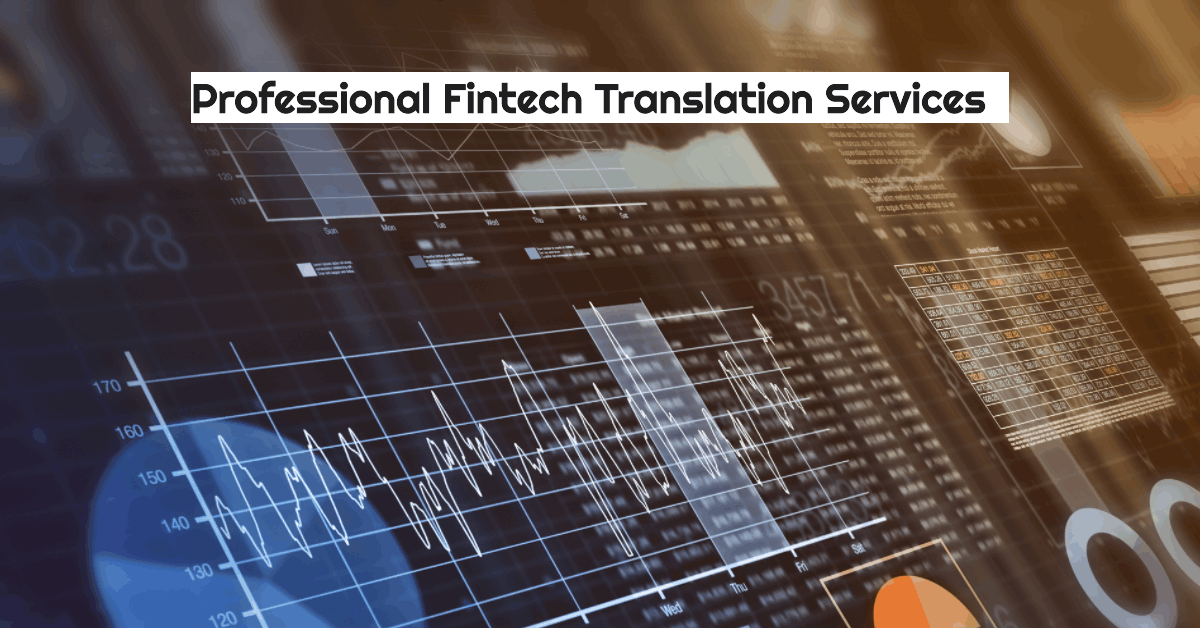Document Translation Services Rates Singapore
In today’s globalised world, translation services play a crucial role in bridging language barriers and facilitating effective communication.
But have you ever wondered how much these services actually cost? If you’re new to purchasing translation services, it can be quite challenging to determine the right price. With countless options available, finding the perfect fit for your needs can seem perplexing.
So, if you’re ready to cut to the chase and discover what factors influence the pricing of translation services, join us as we unravel this intriguing world where languages meet.
Understanding the Need for Document Translation Services
Expanding business operations globally requires effective communication to engage with target audiences. Translation services play a crucial role in bridging language barriers and ensuring successful interactions.
By investing in professional translation services, companies can break down language barriers, tailor messages for different cultures, and establish trust and authenticity with their target audience.
Effective communication is essential in multicultural and multilingual societies. Translation services enable businesses to accurately convey messages in multiple languages, ensuring understanding and resonance with diverse populations.
Localisation services further enhance communication by considering cultural nuances and preferences.
By investing in translation and localisation services, companies can effectively engage with their target audience and build strong connections.
Engaging with the target audience through their language is crucial for building brand loyalty.
By speaking the language of the customer, businesses demonstrate a genuine interest in understanding and catering to their needs. This creates trust, credibility, and authenticity, leading to increased customer satisfaction and loyalty.
Tailoring messages culturally and linguistically allows companies to differentiate themselves and effectively convey their value proposition, positioning themselves as relatable and trustworthy partners.
Document Translation Services in Singapore
Now, you have some documents translation to do and have selected some translation companies that you think can provide this service.
Besides deadlines and process flow, one of the most important considerations is pricing.
However, you will soon realise that most translation companies do not spell out the pricing in dollars and cents specifically on their websites.
It is quite different from buying a vacuum cleaner for a fixed price, for example.
This is because translation companies take into account many factors before quoting you a price, and will require you to send them the documents translation before they can provide you with an accurate quotation.
Different Types of Translation Services Pricing Models
Translation services are essential for businesses and individuals looking to communicate effectively across different languages.
But how much do these services cost?
The pricing models used by translation service companies can vary, depending on factors such as the complexity of the project, the language pair involved, and the turnaround time required.
Hence, how do translation companies quote? It turns out that there are a few ways to do so.
- Per Word Rate: Calculation and Transparency
This is by far the most common way that translation companies quote for many documents. Intuitively, it does make much sense.
The more words required for translation, the greater the price, correct?
This way of quoting fixes the final price and only focuses on the number of words translated, and not on the number of hours worked by the translator.
For example, if the price is S$0.15 per source word, then the cost for translating a 3000-word article will turn out to be S$450 in total.
Whether the translator takes 10 hours or 20 hours to translate the article is irrelevant to the final pricing.
There is another way to quote per word, and that is by per target word.
For example, if you want to translate a 2000-word document from Chinese to English and the quoted price is S$0.20 per English-translated word, then there is some variability in the final pricing.
If the number of translated English words turns out to be 2200, then the total price becomes 2200 x S$0.20 = S$ 440.
There is no real way to figure out the final word count before the translation is finalised, so many translation companies will give a price range.
Instead of quoting per word, some translation companies like to quote per 100 words or per 1000 words, but this is a matter of preference, and the price of each word can be derived easily by doing some simple arithmetic.
- Per Page Rate: Suitability for Specific Documents
If you plan to translate some certificates, then quoting by the number of words will not be so suitable.
This is because many certificates, like graduation certificates and marriage certificates, contain very few words.
However, the effort required to translate them and format the document is quite considerable. Therefore, the cost of translating certificates is quoted per page.
Another example is when the translated document has numerous pages.
If you want to translate a 90-page pdf document that is not editable, it would be really difficult to get an accurate total word count.
Therefore, translation companies will estimate the average word count per page to give you a quotation by page.
If the company quotes you S$50 per page, then the total cost is S$50 x 90 = S$4500 for translating the whole document.
- Hourly Rate: Applicable for Small, Fixed-Scope Projects
This is by far the least common way to receive a quotation.
This is because it is hard to estimate the number of hours required and there is no reliable way to actually quantify and verify the number of hours worked by the translator, so it is a matter of trust, and the final cost can fluctuate tremendously.
For small projects with fixed scopes or when translation needs to involve tasks beyond straightforward document translation, an hourly rate pricing model may be more suitable.
This model allows translators to charge clients based on the time spent working on the project rather than word count or page length.
Hourly rates can be beneficial when dealing with tasks like transcreation (adapting content for cultural nuances), localization (adapting content for specific regions), or interpretation services.
These types of projects often require additional research, client communication, and creative input from the translator.
When opting for an hourly rate model, both parties should agree upon an estimated number of hours required before commencing the project. This ensures transparency and helps prevent any surprises.
- Setting a Minimum Pricing: Compensation for Time and Effort
Imagine that you only want to translate a short paragraph of 50 words.
You may think that logically, you should only be charged 50 times the unit word rate. However, from the translation company’s perspective, there is a sunk cost of project management, assigning translators, proofreading, etc.
As such, many companies set minimum pricing for small jobs.
The actual word count may vary, but many companies set it at around 250 words.
This means that whether your short article is 50 words or 250 words, the amount that you pay for translation is identical. Thus, it may be a good idea to accumulate a few articles and then send them for translation together, as this will be more cost-effective.
Factors Affecting Translation Services Costs
Experience and qualification of translators
The experience and qualifications of translators play a significant role in determining the cost of translation services.
Highly experienced translators who specialize in certain subject areas tend to charge higher rates due to their expertise.
These professionals have spent years honing their skills and building a solid reputation, making them highly sought after in the industry.
Clients seeking top-notch translations are willing to pay more for the assurance that their documents will be handled by highly qualified professionals.
Specialization and supply of translators
Another factor influencing translation costs is the specialization and supply of translators.
Translators who specialize in niche industries or technical subjects may charge higher rates because they possess specialized terminology knowledge and understand the intricacies of those fields.
For instance, legal or medical translations require an understanding of complex terminology that only skilled specialists can provide.
The availability of qualified translators for a particular language pair can impact pricing.
If there is a scarcity of translators fluent in both the source and target languages, clients may need to pay more to secure their services.
Language pairs and complexity of the subject matter
The combination of source and target languages also affects translation costs. Certain language pairs are considered more challenging due to linguistic differences or cultural nuances, which can increase the overall price. Languages with limited resources or less common combinations may require additional effort from translators, resulting in higher rates.
Moreover, the complexity of the subject matter being translated influences costs.
Technical documents filled with jargon or scientific research papers demand specialized knowledge from translators. The intricate nature of such content requires meticulous attention to detail, leading to higher pricing.
Document type, turnaround time, and volume of work
The type of document being translated is another determinant of translation costs.
Legal contracts or official documents often require extra attention to accuracy and legal terminology, which can increase the overall price. On the other hand, general documents like emails or informal correspondence may be priced lower due to their less formal nature.
Turnaround time also plays a role in cost considerations. Urgent translations with tight deadlines may incur rush fees since translators need to prioritize these projects over others.
Similarly, larger volumes of work may lead to discounted rates as translators have more consistent work and can allocate their time accordingly.
Relationship between Price and Quality
Investing in high-quality translation services is crucial for businesses and individuals who want to ensure accurate translation and preservation of meaning. While it may be tempting to opt for cheaper options, the long-term benefits of delivering high-quality content far outweigh the initial costs.
Price is often an indicator of quality. It’s important to remember that professional translators invest time and effort into honing their skills, staying up-to-date with industry trends, and maintaining language proficiency.
These factors contribute to the higher cost associated with their services.
Ensuring accurate translation and preservation of meaning
One of the main reasons why investing in high-quality translation services is essential is to ensure accurate translation and preservation of meaning. Language is complex, with nuances, cultural references, idioms, and colloquialisms that can be challenging to capture accurately.
Professional translators have a deep understanding of both the source and target languages. They possess not only linguistic expertise but also cultural knowledge that allows them to convey messages effectively across different cultures.
By relying on experienced translators, you can be confident that your content will be translated accurately while preserving its intended meaning.
Cutting corners by opting for cheaper alternatives can lead to mistranslations or misinterpretations that can have serious consequences.
Inaccurate translations can damage your brand reputation, create misunderstandings among your target audience, or even result in legal issues if critical information is misrepresented.
The long-term benefits of delivering high-quality content
While investing in high-quality translation services may seem costly initially, it brings significant long-term benefits. Delivering high-quality content helps you establish credibility and build trust with your target audience. When your message is conveyed accurately in multiple languages, it shows professionalism and commitment to providing a seamless experience for all users.
High-quality translations also contribute to better customer satisfaction. When customers receive well-translated materials that resonate with them culturally, they are more likely to engage with your brand and make informed decisions. This can lead to increased customer loyalty, repeat business, and positive word-of-mouth recommendations.
Moreover, delivering high-quality content sets you apart from competitors who may be using subpar translations or machine translation tools. By investing in professional translation services, you demonstrate a commitment to excellence and ensure that your message is effectively communicated in different markets.
Document Translation Services Company in Singapore
When selecting a translation company, there are several other factors to consider beyond just pricing.
Look for a company with experience in your industry or niche, as this will ensure they have a better understanding of your specific requirements.
To make an informed decision about a translation service company, consider their expertise, reputation, customer reviews or testimonials, and their ability to meet deadlines consistently.
In order to get an accurate quote for your project and find out how much translation services would cost you specifically, it is recommended that you reach out directly to a reputable document translation company such as WhizWordz with your project details. They will provide you with personalized quotes based on your unique requirements.
Remember that choosing a reliable and high-quality document translation service company is crucial for achieving accurate and culturally appropriate translations that effectively communicate your message across languages.
If you’re ready to take the next step in expanding your global reach through professional translations tailored to your needs, don’t hesitate! Contact WhizWordz International today and unlock new opportunities for success together!
Our friendly sales team in WhizWordz is well-versed in an extensive and varied range of languages to help you.
Frequently Asked Questions (FAQ) section
How do I know if I need professional translation services?
Document translation services are essential if you have content that needs to be accurately translated into another language while maintaining its meaning and context. If you want to effectively communicate with a global audience or target specific markets, professional translation services can help you achieve your goals.
How long does the translation process usually take?
The duration of the translation process depends on various factors such as the length and complexity of the content, language pair, and the availability of translators. It’s best to consult with a translation company to get an estimate based on your specific requirements.
Are there any additional costs involved in translation services?
Additional costs may arise if you require specialized translations in technical or highly specialised fields. Some companies may also charge extra for urgent or expedited projects. It’s important to discuss all potential costs upfront with your chosen translation service provider.
How can I ensure confidentiality and data security during the translation process?
Reputable translation companies prioritize confidentiality and data security. They often have strict protocols in place to protect client information. Before engaging a translation service company, inquire about their privacy measures and ask for details regarding how they handle sensitive information.




